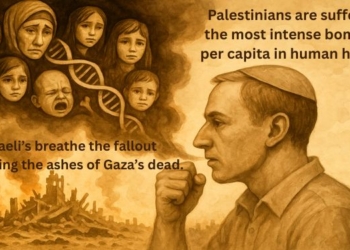
By: Forrest Rivers
In Buddhism there is a philosophical doctrine called “The Middle Way.” This idea centers on the Buddha’s suggested method for spiritual enlightenment. The revered sage’s story is well known. Siddhartha Gautama, The Buddha, was an esteemed prince raised in the luxury of his father’s palace replete with all the material wealth and privileges bestowed upon men of royalty during his time. Though, his father had been told by an oracle that his son was destined for a life of sainthood outside the comforts of the palace, the young prince knew not of his destiny. That is, until one day while touring outside the kingdom, he saw for the first-time lepers wandering the streets, elderly people on the verge of death, and children begging for food in the streets. In response to witnessing human suffering, the Buddha grew disillusioned and resolved to discover the cause and remedy to suffering. As his karma would compel him, the Buddha then made the fateful decision to leave his life of luxury and become a wandering aesthetic or holy man.
After years of deep and intense searching that included enduring brutal physical austerities like prolonged periods of extreme fasting that nearly killed him, the former prince at last found his enlightenment while meditating under a bodhi tree for 49 days. Among one of the many profound truths that he found in his transcended state was the idea of the middle way or path to enlightenment. In stark contrast to his own path, the Buddha concluded that spiritual seekers should try and avoid either extreme of living in luxury or abusing their bodies in their quest for liberation. Instead, the Buddha advocated for the virtues of balance and moderation in one’s path to enlightenment.
Buddha’s middle way could easily be adopted as our guiding vision for the new year that is upon us. If the events of 2020 and the first three weeks of 2021 have taught us anything at all, it is that extreme thinking and action only increase our collective suffering. Recent and turbulent events like the January 6th storming of the US capitol by an angry mob of violent Donald Trump supporters, scenes of chaotic left wing riots that erupted during some of last summer’s BLM protests, the dangerous propagation of QAnon conspiracy theories by unscrupulous right-wing media outlets, the ongoing threats of violence posed by rabid militia groups in the US, as well as Big Tech companies’(like Facebook and Twitter) recent purge of certain conservative leaders on social media are at their core the result of extreme ways of thinking and reacting to the world around us. Each of these events are also representative of a people dangerously out of balance with the greater reality of living spirit. We should aspire to adopt moderation and balance in our discourse and actions when confronting divisive topics in the same manner that the Buddha advocated for the middle way in his suggested path to enlightenment. How might applying the middle way to our divisive environment positively reshape our reality?
First, through finding balance within we would truly learn to listen to the perspectives of those people who we disagree with. This doesn’t mean that we have to agree with everyone’s opinion from the “other side.” Rather, through walking the path of the middle way we would avoid judging, condemning, and ridiculing those with different beliefs from our own.
Second, applying the Buddha’s middle way to our collective predicament would help heal the fractured realities that exists to appalling degrees in nations like America. If we can learn to bring greater awareness, balance, and moderation to our discourse on divisive themes, we will succeed in rebuilding bridges between disparate groups and focus on our common humanity.
Third, following the path of the middle way will help each of us spot extremist thinking at its inception before it has the opportunity to fester in our communities and threaten our common decency, democracy, and goodwill. Regardless of our political, ethnic, or religious affiliations we will become skilled at calling out extremism in any of its forms or disguises if we embrace the principles of balance and moderation.
Finally, adopting the vision of the middle way will help the human race effectively respond to the very dire existential problems like climate change, deforestation, ecological destruction, and nuclear proliferation that transcends the contours of all the “isms” that currently separates us. How can we expect to rise to the occasion as one human family to address our greatest existential and planetary threats if we can’t even agree on the basic facts of a novel virus or the outcome of a contentious election?
The promise of brighter days ahead will be a matter of not if but when humanity learns to avoid extremes in both thought and action. Let us all look deep within ourselves and embrace our own living Buddhas.
About the Author:
Forrest Rivers is a writer, teacher and speaker who splits his time between the beautiful Blue Ridge Mountains of North Carolina and the Colorado Rockies. He is the author of The Hippie Revival and Collected Writings and his forthcoming book, COVID-19 and Humanity’s Spiritual Awakening, is set to be published on February 23, 2021 and will be available through Amazon. You can connect with Forrest through email at Forrestrivers4@gmail.com or visit his blog: https://forrestrivers.com/blog/.















